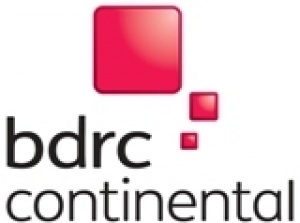Big brand hotels face challenge of different regional priorities

One of the challenges for brands in today’s hotel market is the amount of unsolicited feedback coming from guests that is being shared openly via social media. Individual experiences and viewpoints are available online for anyone to see, and BDRC Continental research has revealed what a huge influence these comments have on hotel brands. Almost a quarter of respondents to the BDRC Continental Hotel Guest Survey for example described guest reviews in sites such as TripAdvisor as being “very reliable”.
However, whilst this feedback is useful, it can be hard to monitor and to respond to as much of it will relate to personal experiences, rather than the overall brand. BDRC Continental has applied the Net Promoter Score (NPS) metric to hotel brands in Europe, Middle East and Asia Pacific to provide them with insight into what their customers think and say about them, helping them to improve customer relations and convert those who might openly criticise them into advocates.
NPS is a useful metric devised for gauging customer loyalty measured as repeat purchases and referral patterns – over time. Respondents are assigned a customer type of Promoter, Passive or Detractor, depending on how they answer the question “How likely is it that you would recommend Company X to a friend or colleague?” A company’s NPS is calculated by subtracting the percentage of Detractors from Promoters. One of its major advantages is its simplicity – it is easy to understand, and so simple for brands wishing to improve their scores to act upon.
What is interesting about the key drivers of Promoters for the upscale hotel brands is how they differ by region. Whilst a worthwhile frequency programme tops the list in both Europe and Asia Pacific and value is rated in the top five, travellers in the Middle East have different priorities. The Middle East is the only region where the check in, design and style, and attitude and behaviour of the staff and brand is so important to the success of the brand. Only Europeans appear to desire fitness and leisure facilities, and travellers in Asia Pacific are more concerned about the hotel’s actions to protect its impact on the environment.
BDRC Continental Hotels & Hospitality Research Director Tim Sander says “In today’s social media world, where personal opinions and experiences are monitored by the big brands, it can be easy for hotel brands to lose sight of the big picture. By using an approach like NPS, brands are able to compare their performance on the elements that create Promoters. Crucially, they can evaluate their scores not only against their competitive set, but by region, adapting their offering accordingly. The brands that perform well in our analysis do this on a continuous basis to maintain their position with guests. For instance they use mystery guest visits and brand audits to constantly check the business guests’ experiences.”
ADVERTISEMENT

